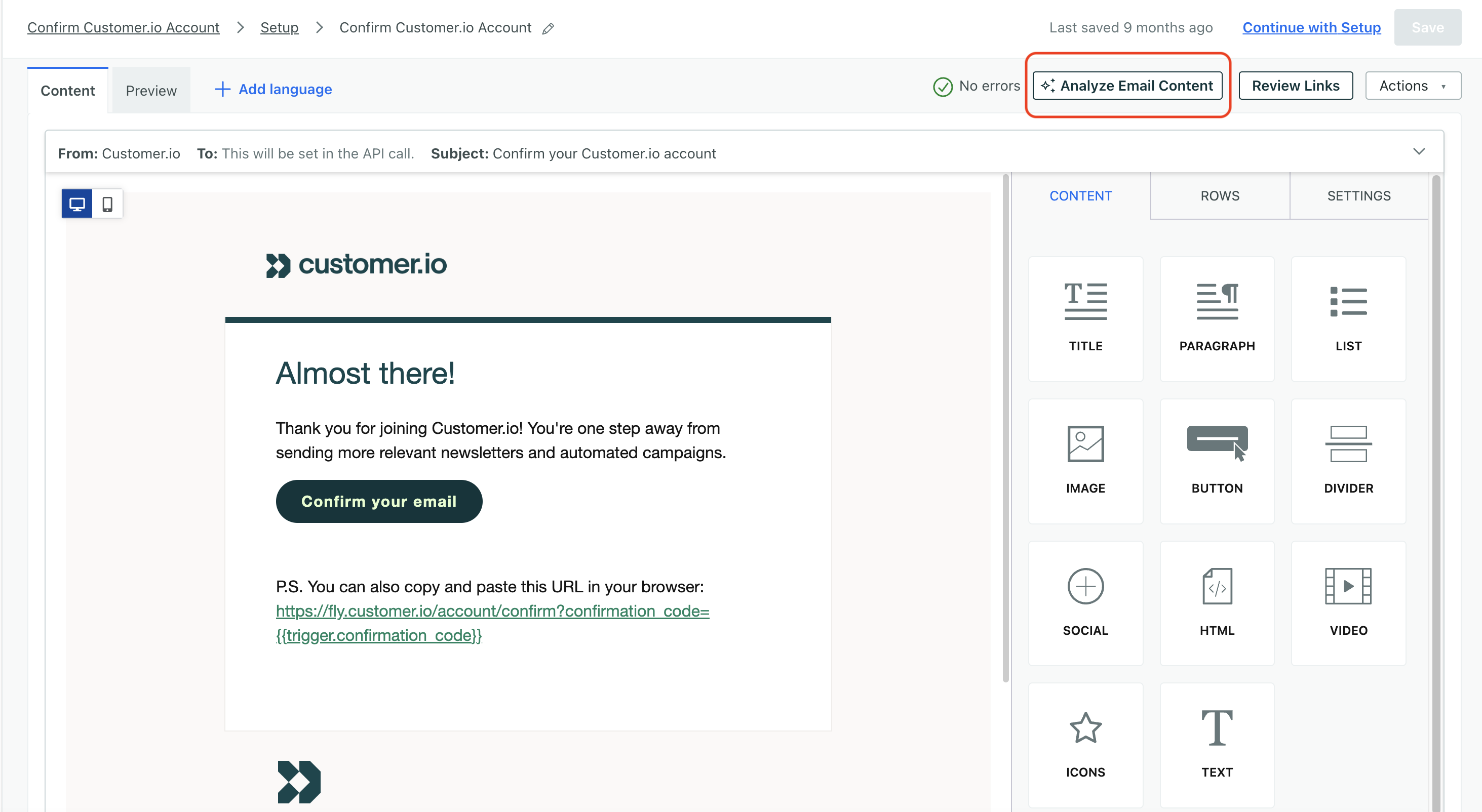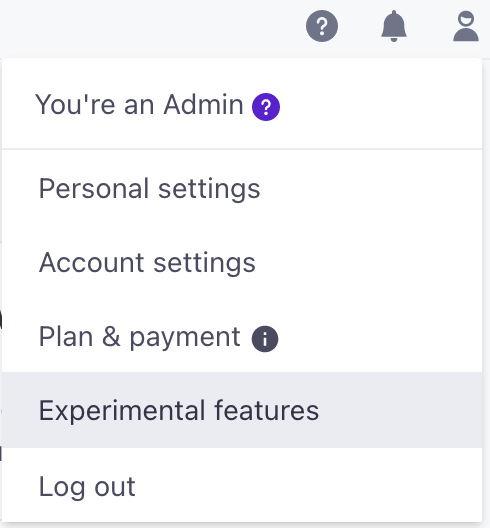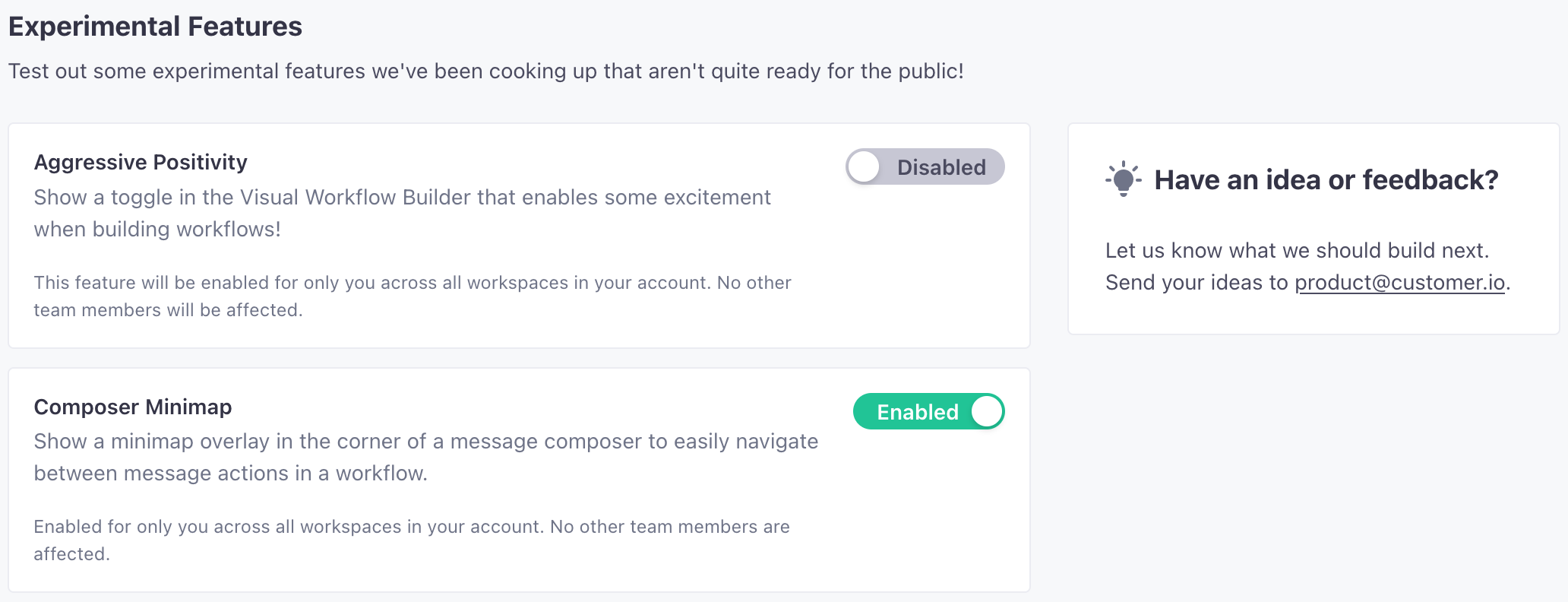Enable experimental features
UpdatedHow it works
We aim to release features early and often. Sometimes when we release new features, we’ll mark them as beta or experimental. In both cases, we think the features are stable and ready to use (though we can’t say that they’re bug-free), but we want your feedback!
Beta features are early releases of a features we’re actively working on. In general, we think beta releases are stable but they may not solve all the problems we want them to, or—in the case of our SDKs—may need scaled testing. In general, beta features are available to everyone in your workspace.
Experimental features are typically things that we hope improve our interface—and your experience with it. You have to enable experimental features for yourself. When you enable an experimental feature, you won’t affect anybody else in your workspace.
| Feature | Enabled | Range of effect |
|---|---|---|
| beta | by request or automatically | account-level (all workspaces) |
| experimental | manually on the Experimental Features page | per user (all workspaces) |
Experimental AI features
We’re working on features that use artificial intelligence (AI) to help you build messages and take advantage of some of the more advanced features of Customer.io. But AI is tricky and we want to make sure that you can use AI-enabled features responsibly at your discretion. So, in most cases, we’ll expose AI-based features alongside our other experimental features.
We do not use your customer data to train AI models.
You’ll find experimental AI features in your account settings by clicking in the upper-right corner of Customer.io and going to Experimental features. If you’re an administrator and you want to disable access to AI features all together, you can disable Customer.io AI in your account’s Privacy, Data, & AI Settings.
We currently offer the following AI features:
- Email Content Analysis: This feature uses AI to review your email content and receive an analysis report highlighting areas of opportunity to deliver a message quicker to the audience you’re trying to build relationships with.


- Segments: When you create a segmentA group of people who match a series of conditions. People enter and exit the segment automatically when they match or stop matching conditions., sometimes it’s hard to determine the exact conditions that’ll return the group of people you’re interested in. This feature suggests segment conditions based on the descriptions of your segments.
Beta features
In the Customer.io UI, we generally release features as “beta” for two reasons:
- We’re actively soliciting your feedback to make sure that we built the best possible version of the feature to suit you.
- The beta feature is a completed part of a larger suite of features. We’re actively working on the suite and we want you to know that you can expect more changes.
Beta releases are typically stable. We’ve tested things before we’ve made them available to you. We just want you to know that a feature is new, may see minor changes going forward, and is likely something we’re expanding on. And we want to hear from you about these features! We want to build things that support your needs. If they don’t—or you know how we could do better—you should let us know!
Beta SDK releases
Beta SDK releases are releases that we’ve tested internally, and expect to release to release as a stable feature. We release betas to grant you access to the latest features and give you time to handle changes in your app before a stable release.
We recommend that you don’t use beta releases in your production apps unless specifically advised by Customer.io.
Enable or disable an experimental feature
When you enable an experimental feature, you enable it for yourself in every workspace that you have access to. You do not affect other users.



